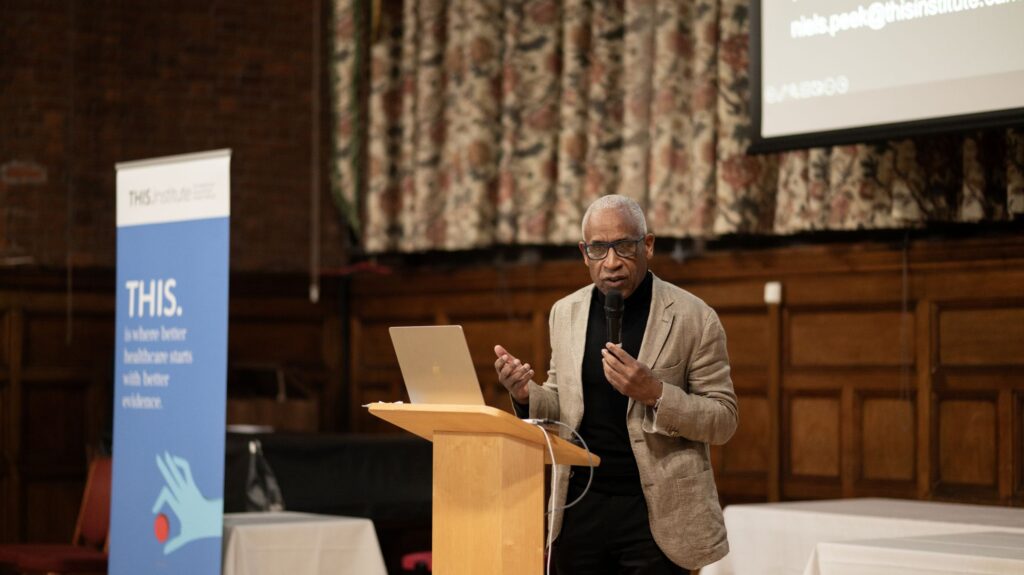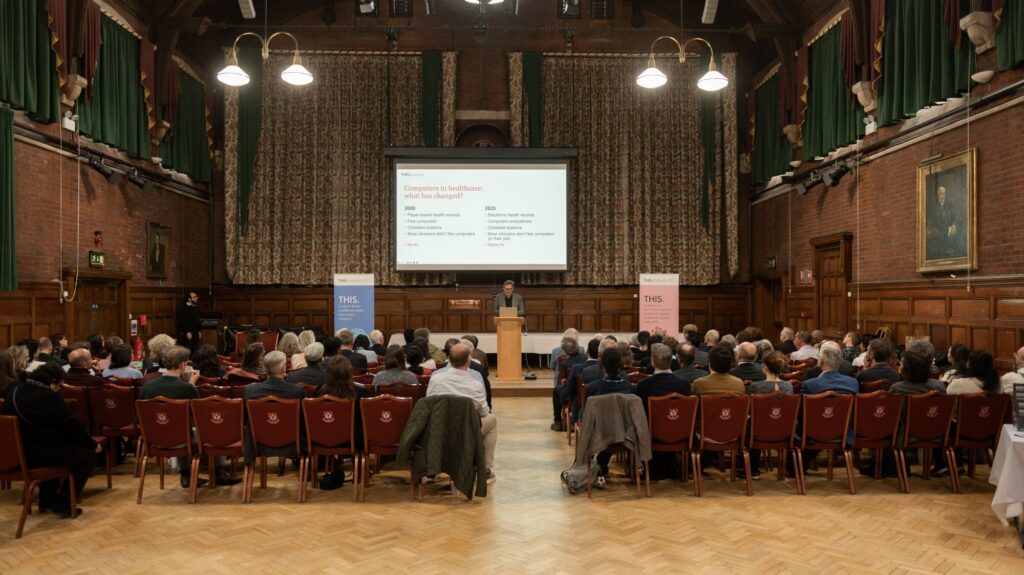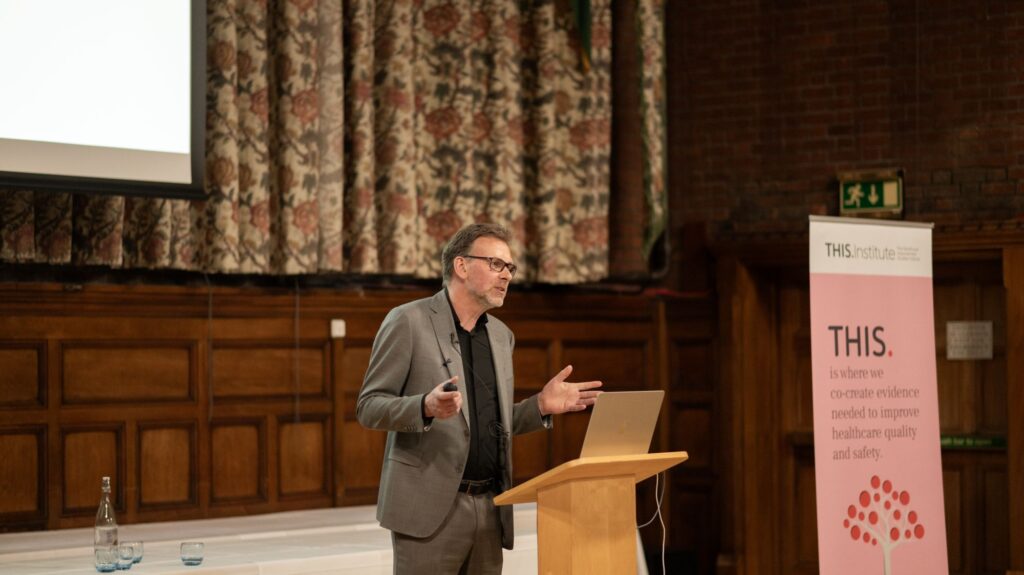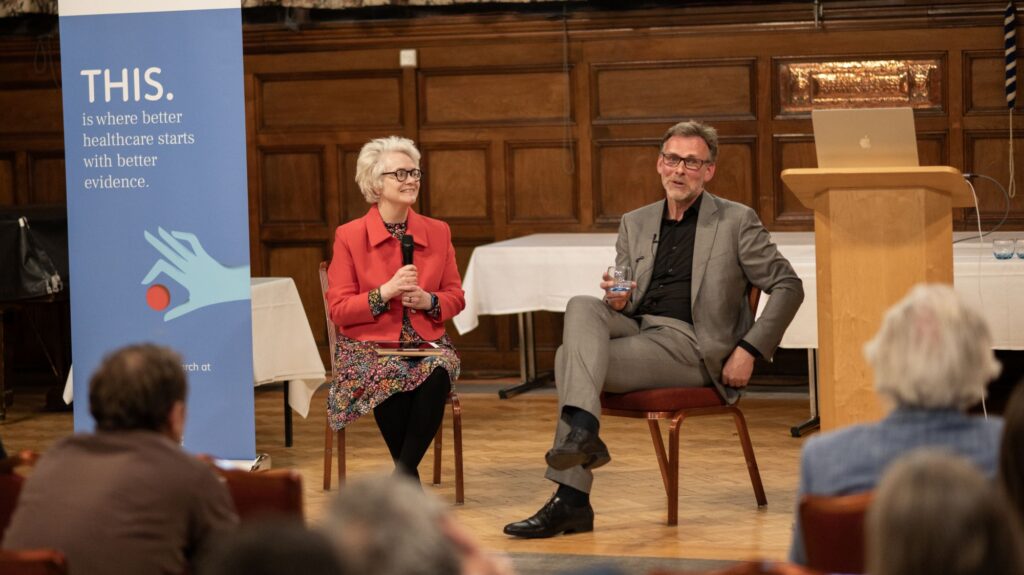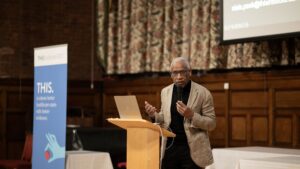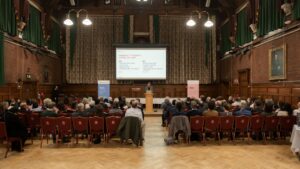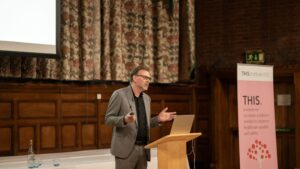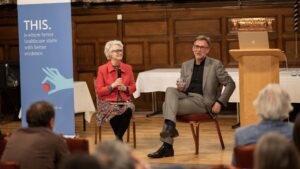Evidence-based healthcare innovation in the age of AI

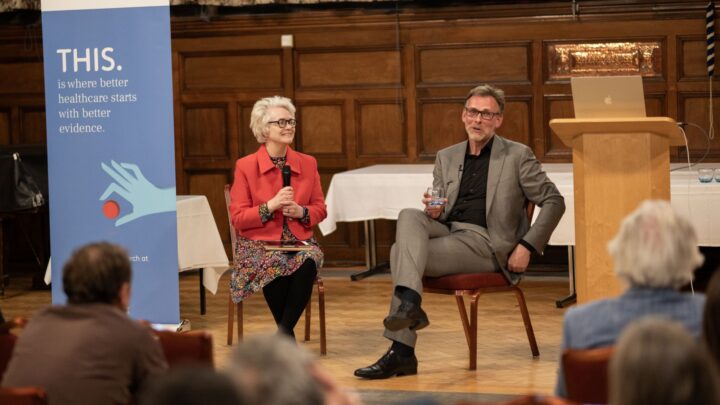
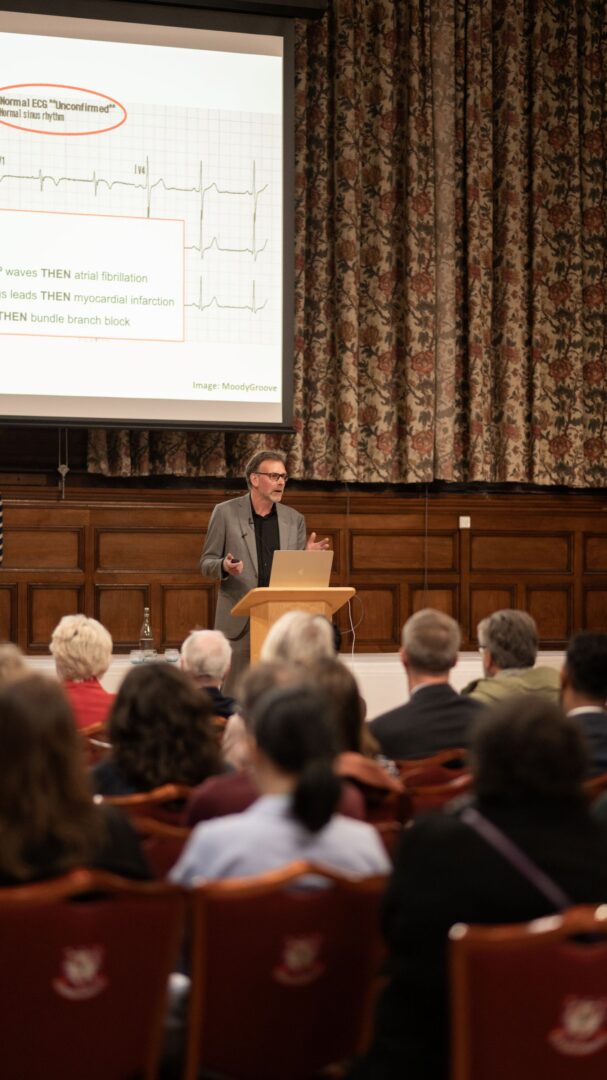
In April 2025, THIS Institute and Homerton College welcomed guests back to the Great Hall for the second edition of their annual lecture. The evening brought together friends and key stakeholders for a thought-provoking talk by Niels Peek, Professor of Data Science and Healthcare Improvement at THIS Institute, on evidence-based healthcare innovation in the age of AI.
Reflecting on 25 years of progress, Niels explored how AI in healthcare has evolved – from early rule-based systems to modern machine learning and ambient voice technology. He noted that while traditional AI has delivered modest improvements in clinical decision-making, predicting success remains difficult. Meanwhile, the potential of some more recent developments in AI remains largely unproven in practice.
Niels highlighted an important distinction with his area of research: while tech developers focus on high-stakes tasks like diagnosis, many clinicians are looking for support with routine work like summarising consultations. As he put it, meaningful integration of AI into healthcare still lags far behind the number of tools being developed.
It may be some time before the benefits of AI are fully realised in healthcare, and managing the inherent risks may be an ongoing challenge. But if tasks like admin and documentation, that computers are so good at, can support clinicians in doing what they do best – talking to patients and making clinical decisions – good evidence to support the progress of AI is vital.
Scroll down to watch the full lecture recording and more photos from the evening.
